Qatar 2022: The Climax of Cultural Exchange and Western Hypocrisy
When I landed in Qatar for the first time in July 2010, I felt like I was landing in a small airport in one of the underdeveloped cities in India. Coming from Dubai, a well-developed city, it was not strange to feel such. It was time that Qatar eagerly awaited the result of the bids to host the football World Cup 2022. With limited mass transport infrastructure and humble sports facilities, it seemed like a wild dream for Qatar, a tiny state of a mere 1.8 million population that time, to host the most important sports tournament on the planet.
But Qatar had set its vibrant vision and clear plans under the leadership of then Amir Sheikh Hamad bin Khalifa Al Thani, who transformed this tiny Country which was once sandwiched between two rival regional heavyweights, Saudi Arabia and Iran. Since the latter half of the 1990s, the Country had already been getting noticed regionally and globally with its ambitious foreign policy and became a strategic player in geopolitics.
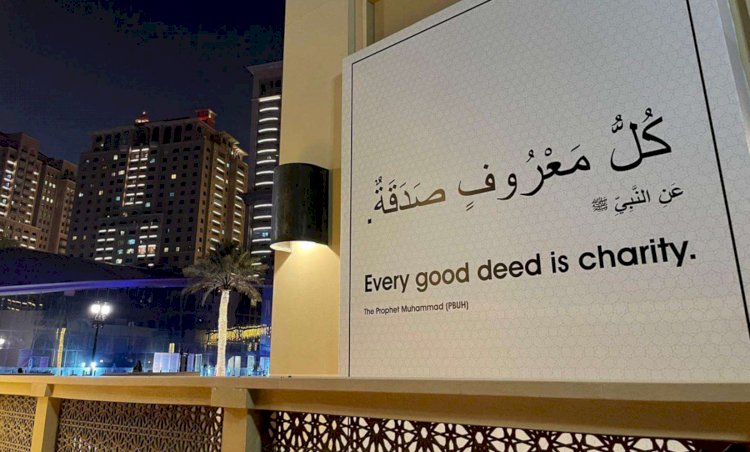
A billboard in Doha featuring sayings of Prophet Muhammad (PBUH)
Internationally Qatar was known for the Al Jazeera channel, which was founded in 1996, soon after Sheikh Hamad bin Khalifa assumed powers as the ruler of Qatar in 1995. An Independent television network of international acclaim was a rare initiative. With Al-Jazeera, Qatar started to use soft powers to come out of the sandwich situation in the region. Doha also actively played the role of a power broker between different sides in the Middle East and North Africa.
Qatar's wise leaders invested their sovereign wealth amassed from the LNG export strategically, and now it amounts to more than $440 Billion spread across 40 countries. Volkswagen, Barclays, Harrods, London Olympic Village, Empire State Building, and PSG are some of the few names that carry a Qatari stamp. In addition, Qatari also used their wealth for charity and generous funding for many regional and global causes through Qatar Charity and many other missions.
Apart from Media, power-broking, strategic investment and generous funding, Sports was another soft tool Qataris used to build the brand 'Qatar' to be a regional champion outweighing the area of their Country and the size of their population.
As a result, the Qatari bid to host the FIFA World Cup 2022 with the slogan 'Expect Amazing' was selected on the night of 2 December 2010 to the shock of many. I still remember the celebration that night by Qataris and residents alike when Joseph Blatter made the announcement. The dream journey Qatar started that night ended in another celebration on the night of 18 December 2022 in Lusail Boulevard while Qatar Amir Sheikh Tamim bin Hamad Al Thani was watching from the top of a building, waving his hands for the mass chanting his name and praising him as a hero.
The dream journey between these two nights tells us a story of not just a football tournament but of nation-building, challenges, controversies, blockade, principles, cultural exchange, and much more. The two balls used in the FIFA World Cup were named Al-Rihla, which means 'journey' and Al-Hilm, which means dream. While it was a dream journey for Qataris, from the bid winning to the crowning of champions, it was a nightmare for many others.
Qatar 2022 will definitely be remembered for the worst hypocrisy and racism of the western media throughout this journey. First, it was corruption allegations for winning the bid, later moved to human rights and labour deaths. U.K.'s 'The Guardian' and 'Daily Mail' have run many stories criticizing Qatar over the years, and they projected the total number of deaths among the south Asian migrant workers in Qatar as something related to work-related deaths of World Cup projects. Then they come up with LGBTQ+ rights and the use of Alcohol. As always, they tried to impose a Eurocentric/western value system on an Islamic Arab country. However, this tiny state could withstand that pressure ensuring the local culture and customs are respected while welcoming fans from around the globe. Undoubtedly, Qatar has its problems, but as Qatar Amir rightly observed, there were in the West who could not digest the idea of An Arab Islamic nation hosting the planet's most important sporting event.
The proponents of LGBTQ+ politics held an intensive campaign to allow them to raise LGBT flags and symbols during the tournament. Ahead of the World cup, while talking to the Associated Press, Major General Abdulaziz Abdullah Al Ansari, the head of security for the FIFA World Cup, said they are not against individual personal things. Still, they won't tolerate a 'political demonstration'. "Here, we cannot change the laws. You cannot change the religion for 28 days of the World Cup. Watch the game. That's good. But don't come in and insult the whole society because of this (LGBTQ activism)," the Media quoted him as saying.
Responding to questions from the German press, Qatar Amir himself had said that while we welcome everybody to Qatar, we expect them to respect our culture. But, on the contrary, the German players and even the German Interior Minister were noticed for their infamous gestures during the World Cup matches.
The unprecedented criticism and moral lessons from the West finally compelled the FIFA President, Gianni Infantino, to clearly say that the West does not have the moral superiority to give human rights lessons to others. "I think for what we Europeans have been doing in the last 3,000 years, around the world, we should be apologizing for the next 3,000 years before starting to give moral lessons to people," he said.
While controversies were going on in the media, on the ground, Qatar was set to stun the world as it promised.
People praying outside the Al-Thumama Stadium, designed to replicate the 'gahfiya', a traditional woven cap
Unlike the previous local organizing committees, Qatar had named its organizing committee as the Supreme Committee for Delivery and Legacy, with a genuine intention for an exceptional delivery while creating a legacy for the future. It built seven new stadiums and refurbished another one. The stadiums reflected Arab and Islamic culture and Qatari traditions. For example, Al Thumama Stadium is designed to replicate the 'gahfiya', a traditional woven cap worn by men and boys across the Middle East and Arab world. Al-Janoub stadium, located in the south of Qatar, was built in the shape of a dhow sailing boat, traditional Arabian pearl diving, and a fishing vessel. The western media even tried to call this design by the late Iraqi architect Zaha Al-Hadidi something similar to female genitalia.
While the western media exploited the opportunity to raise anti-Arab and Islamophobic reports against hosts Qatar and Muslim countries played in the tournament, such as Morocco, Qatar used the opportunity to highlight their commitment, culture and values.
The inaugural ceremony featured Hollywood actor Morgan Freeman and differently-abled Qatari activist and YouTuber Ghanim al-Muftah, who stole the show of the highly anticipated event with a verse from the Holy Quran that urges the world to embrace unity and diversity. Muftah won hearts worldwide as he spoke powerfully about the importance of humanity coming together as a Qatari message to the world. Showcasing the hypocrisy and prejudice again, some western media, including BBC, did not broadcast the opening ceremony.
Qatar wanted to build a bridge between cultures and make the western world aware of how their culture differs from others. So, the Europeans and Americans who visited the Country were busy exploring the local culture by trying Ankle-length robes, known as 'thawbs' locally, who often wear them with a ghutra, a traditional Arabic headdress. Ladies were seen trying Abayas and hijab. At a function held for journalists and the press, I witnessed them lined up to try these dresses.
Masjids in different tourist spots welcomed football fans and exchanged information about Islamic culture and values. The Blue Mosque in Katara Cultural Village, situated in the heart of Doha, was the focus of attention for World Cup fans who wanted to know about Islam. Multilingual male and female preachers at the mosque explained the religion and tolerance of Islam to tourists.
The Qatar Guest Center had brought dozens of Muslim preachers from around the world to Qatar for the tournament. Many volunteers were also appointed to educate people about Islam. In addition, booklets introducing Islam in different languages were distributed. The accommodation facilities in different parts of the city and transportation facilities also displayed Q.R. Codes to explore Islam.
For many fans attending the world cup, it was the first time they listened to Adhan. Qatari Ministry of Awqaf and Islamic Affairs had appointed trained Muazzins in prominent mosques of the Country to ensure that fans attending the world cup got an authentic spiritual experience of Adhan, the Islamic call to prayer.
Abdullah Bin Zaid Al-Mahmoud Islamic Cultural Center in Doha offered a virtual reality tour of the holy city of Mecca. It also placed large placards about the contributions of the Islamic world to medicine, science, math and architecture. The biggest mosque in the Country displayed boards with Islam's social and cultural values.
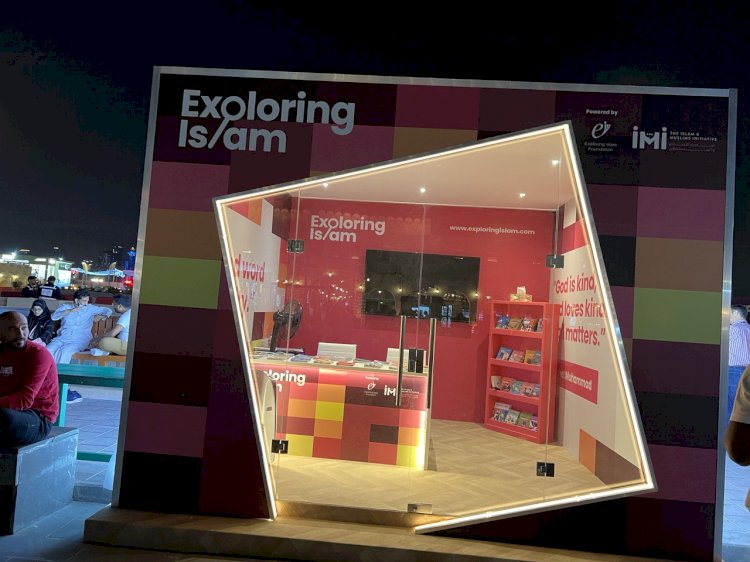
A Booth set up at Souq Waqif, a traditional market at the heart of Doha, to explore Islam for world cup fans
Booths at tourist sites handed out free copies of the Quran, and brochures about Islam were made available in hotel lobbies. Billboards had been set up across Doha featuring U.S. Olympic fencer Ibtihaj Muhammed and other Muslim personalities as part of a campaign encouraging people to explore Islam.
Some accused Qatar of trying to convert people to Islam during the tournament. However, the campaign was actually to change the wrong perception of Islam created by some vested media. An official at Qatar's ministry of religious endowments told AFP that the goal of the state was not "the number of converts to Islam, but rather the number of those who change their opinion about it."
As one of the safest countries in the world, Qatar had promised the safest World Cup ever. As promised, Qatar delivered the safest ever world cup without any remarkable security issues. Western fans accustomed to violent fandom were seen praising Qatar World Cup as women and family-friendly, and many demanded the same in their home countries. Women could enjoy the world cup in a safe and dignified atmosphere. Islamic social norms that ensure the safety of women, restrictions on the use of Alcohol and strict security measures contributed to the safest delivery of this event.
The awarding ceremony of the FIFA World Cup was another scene where Qatar Amir honoured the winning captain Leonel Messi with a 'bishth', a traditional long cloak made out of light material with trimming made out of real gold that is worn over a white thobe. The garment is used during special occasions and viewed as a sign of appreciation and respect. It is typically worn by top officials such as politicians, sheikhs and other high-status individuals. But this act of honour was also criticized by the biased western media, which called it a shame.
Uk's the Daily Mail brought a long headline, "Selfish moment Qatar World Cup hosts force Lionel Messi to cover up his iconic No.10 shirt with an Arabic robe for trophy presentation: 'It's a moment for the players, not the host.' Telegraph called it a bizarre act that "ruined the greatest moment in World Cup history".
The controversy created another opportunity for Qatar to highlight the golden past of Islamic culture. Responding to the western attack on 'bisht' Qatar's Assistant Foreign Minister Lolwa Al Khater reminded European critics that the graduation gown shared universally stems historically from this Arabian cloak.
"Gowning #Messi with a "Bisht" drove many Euro-Centric supremacists Crazy. Do they know that their graduation gowns came from the Arabian gown? A tradition Muslims started in 859 at Al-Qarawiyyan University, founded by a Muslim Woman, by the way. Too much for your colonial fantasy?" she tweeted.
Gowning #Messi with a“Bisht” drove many Euro-Centric supremacists Crazy. Do they know that their graduation gowns came from the Arabian gown? A tradition Muslims started in 859 at Al-Qarawiyyan University; founded by a Muslim Woman by the way. Too much for your colonial fantasy? pic.twitter.com/cXYp1rBKg2
— لولوة الخاطر Lolwah Alkhater (@Lolwah_Alkhater) December 24, 2022
Qatar World Cup has created a lasting positive impact by building a bridge between cultures and opening doors for many from around the globe to explore and experience Islamic culture. Even some regular daily hygiene practices influenced the fans. For example, Muslims use water for istinja, i.e., the obligatory Islamic practice of cleaning oneself with water after using toilets.
Been using the toilet bum shower thing in qatar for a month…I am absolutely horrified we only use toilet paper in the Uk/Europe. This is the best thing ever man.
— VUJ (@DavidVujanic) December 14, 2022
Croatian-born Serbian YouTuber and social media influencer David Vujanic's tweet on the use of water in the toilet went viral and social media was abuzz with comments and shares.
The 12-year-long dream journey of Qatar had faced many crises during these years. The political tensions created by the Arab Spring, the four-year-long blockade by four Arab states of Saudi Arabia, the United Arab Emirates (UAE), Bahrain and Egypt, the COVID pandemic and the Russian – Ukraine war. Finally, the determination of this small country paid off well.
To avoid going too lengthy, I should conclude this article with the words of Qatar Amir Sheikh Tamim bin Hamad Al Thani before and after this mega historic event.
At his U.N. General Assembly speech in September this year, he said, "In this tournament, which will be held for the first time in an Arab Muslim country, and for the first time in the Middle East in general, the world will see that one of the small and medium-size countries is able to host global events with exceptional and impressive success, in addition to its ability to provide a spacious ambience for diversity and constructive interaction between peoples."
أبارك لمنتخب الأرجنتين فوزهم بكأس العالم قطر 2022، وللمنتخب الفرنسي وصافة البطولة، وأشكر كل المنتخبات على لعبهم الرائع، والجماهير التي شجعتهم بحماس. ومع الختام نكون أوفينا بوعدنا بتنظيم بطولة استثنائية من بلاد العرب، أتاحت الفرصة لشعوب العالم لتتعرف على ثراء ثقافتنا وأصالة قيمنا.
— تميم بن حمد (@TamimBinHamad) December 18, 2022
After the world cup finals on 18 December 2022, he said in a tweet, 'In conclusion, we have fulfilled our promise to organize an exceptional tournament in the Arab world, which provided an opportunity for people around the globe to learn about the richness of our culture and the originality of our values."
(The author is a postgraduate of Darul Huda Islamic University, Kerala, India, in Islamic Studies. His research interests include Islamic economics and finance, as well as Muslim world politics. He is interested in digital activism and founded Islamonweb.net and thesite.in. He is a resident of Qatar for more than 12 years)
References
https://www.voanews.com/a/world-cup-host-qatar-seeks-to-change-minds-on-islam/6862327.html
https://www.middleeasteye.net/qatar-world-cup-muslim-teachings-make-mark
https://www.aljazeera.com/opinions/2022/11/28/the-massive-hypocrisy-of-the-wests-world-cup-concerns
https://apnews.com/article/religion-qatar-islam-doha-1fd7e9e6ac1b6f6bdcfa0b21ca271ab4
Disclaimer
The views expressed in this article are the author’s own and do not necessarily mirror Islamonweb’s editorial stance.

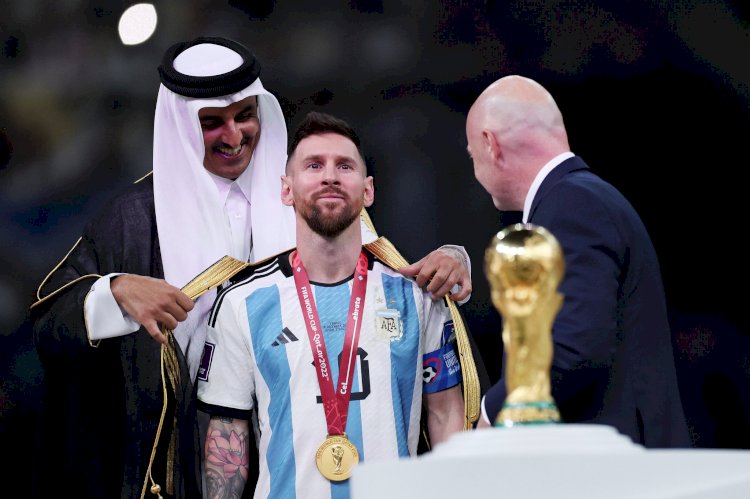


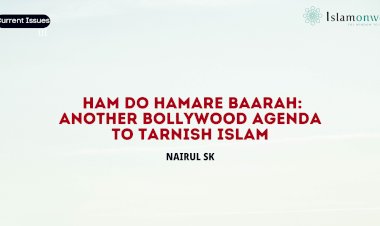

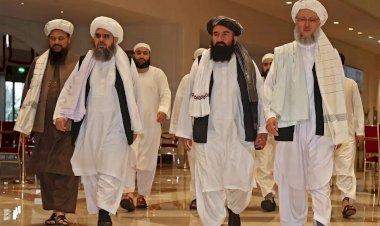

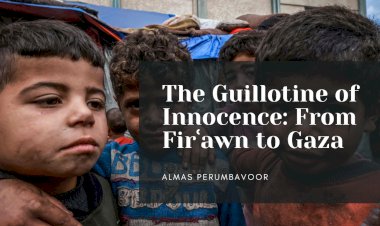
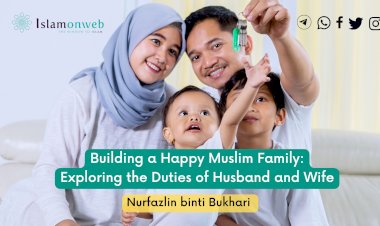














Leave A Comment